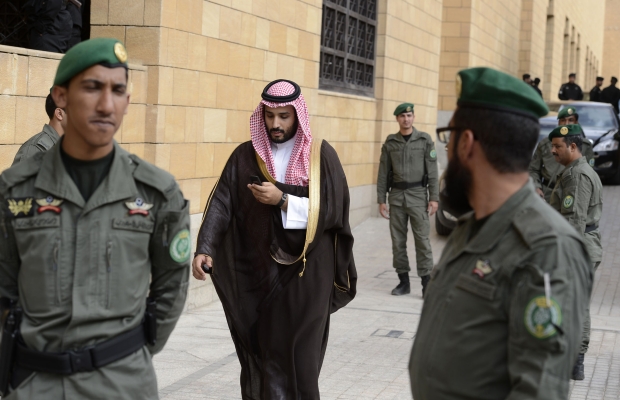Even for Donald Trump, a man whose tawdry personal conduct has frequently placed him beyond the pale, last week’s crass and odious behaviour marks a new low. By retweeting doctored propaganda videos posted by a British far-right fringe group, Trump gave the White House seal of approval to incitement to hatred and violence against racial and religious minorities. The villain of Charlottesville proved, beyond any doubt, that he is the president of hate. Trump is a disgrace to the United States. The sooner the American people turn him out of office, the better it will be for them and the world at large. This being Trump, of course, the story does not end there. When Theresa May summoned the courage to deliver a mild public rebuke, saying the retweeting was wrong, the notoriously thin-skinned president hit back. In effect, he told Britain’s prime minister, again via Twitter, to mind her own business and concentrate on catching terrorists. This was an extraordinary way to treat the leader of a close ally whom he had feted in Washington only in January.
Trump’s personal rudeness to May is every bit as inexcusable as his ill-disguised racism and bigotry. Condemnation has rightly rained down on his head across the entire British political spectrum. Vince Cable, leader of the Liberal Democrats, spoke the truth when he said Trump was guilty of an “open, deliberate, calculated insult to the prime minister”. The US leader was not wanted in Britain, Cable said. His invitation to make a state visit should be withdrawn. With this, we heartily concur. The government’s dilemma over the visit and the wider implications of the row for the US-UK alliance are only too painfully evident. May’s rash offer, an attempt to curry favour when both leaders were relatively new to office, has undoubtedly made a rod for her government’s back. But Trump would be a big problem for Britain even if he were not intent on gorging his ego on royal audiences, banquets and gaudy parades in the Mall. As we have said before, Trump is not a fit and proper personto occupy the Oval Office. At a basic level, he does not understand how international – or personal – relationships work. His refusal to apologise to his country’s most steadfast ally for an egregious blunder, coupled with a refusal to take down the offending tweets or heed a formal complaint by Britain’s ambassador, is indicative of a dismaying contempt for long-established diplomatic conventions. Trump’s nationalistic, xenophobic “America First” outlook has no time for equal and balanced relationships between states, no thought for consensus or compromise. In Trump’s sad, blinkered world, you either win or you lose. He has a pathological need to get the better of everybody, be they friends like Britain, foes like North Korea, or hapless golf partners. With him, there is no middle ground.
In such a toxic context, the “special relationship” with Britain was unlikely to prosper. The fact that Brexit Britain needs the US more than at any time, perhaps, since 1940 is doubly unfortunate. May’s idea that, by befriending Trump, she could navigate her way towards a favourable bilateral trade deal was always delusional. American investors, businesses and exporters are not charitable concerns. It is already plain, whether the product is chlorine-rinsed chicken, banned by the EU, or new aircraft – just look at the Department of Commerce’s harsh treatment of Belfast-based Bombardier – that big US companies will seek the toughest, most advantageous terms possible. In this aim, they have the full backing of “zero sum” Trump, whatever he may have told May.
The US-Britain relationship is about a lot more than trade and jobs, although they are very important. At its heart is defence, security and intelligence collaboration. In a bid to calm the storm over Trump’s tweets, Amber Rudd, the home secretary, urged angry MPs to remember this bigger picture. “The importance of the relationship between our countries and the unparalleled sharing of intelligence between our countries is vital. It has undoubtedly saved British lives,” Rudd said last week. In the now seemingly halcyon pre-Trump era, such bald assertions were broadly accepted. But in the iconoclastic age of Trumpism, this is no longer so self-evidently the case.
The usefulness and funding of Nato, the linchpin of Britain’s defence, is openly questioned by the White House incumbent. Trump seems utterly uninterested in the security of Europe or, for that matter, the stability of its near neighbours in the Middle East. Why else would he tacitly encourage the illegal settlement policy of Israel’s rightwing government? Why else would he abdicate any serious US role in ending the Syrian war or bringing to justice its chief perpetrator, the alleged war criminal, Bashar al-Assad? Why else would he be so foolishly, irrationally intent on tearing up one of the great multilateral diplomatic achievements of recent years – the UN-endorsed 2015 nuclear treaty with Iran?
Trump’s approach to all these vital international issues is at odds with, or directly opposed to, British policy and interests. It is not merely a matter of emphasis. These are fundamental differences. And the list is not finished. If Trump recklessly launches a war to destroy North Korea’s regime, as he repeatedly threatens to do, will Britain seriously want to support him? Or what about climate change? Successive British governments have committed themselves to international efforts to reduce greenhouse gases and mitigate harmful environmental impacts arising from human activity. Trump, in his infinite ignorance and denial, rubbished the Paris climate change agreement, snubbed allies like Britain and withdrew the US from the pact.
Trump’s unexplained, fawning attitude to Vladimir Putin, Russia’s predatory president, is the most glaring example of how he actively works against British interests. May recently accused Putin of “weaponising information” through cyber attacks, computer hacks, trolls, bots, fake news and other “active measures” designed to destabilise western democracies. It is not only Trump’s victory over Hillary Clinton that now appears tainted by covert Russian meddling. So, too, do recent elections in France and Germany. Even last year’s Brexit referendum may have been compromised. No one can be certain about that, although Britain’s intelligence agencies probably know more than they are letting on. By overt and devious means, Putin’s Russia systemically and deliberately threatens the independence of the Baltic states and Ukraine, democracy in eastern Europe, the integrity of the EU and the future power balance in the Middle East and Afghanistan.
Yet Putin is the same man Trump refuses to criticise, terms a trustworthy partner and whose word he prefers to that of his own spy chiefs. Trump may ultimately pay a heavy price for this idiocy. Last week’s charging of Michael Flynn, a former senior adviser, suggests the scandal over illegal Russian influence-peddling and collusion is closing in on the White House. As Rudd said, counter-terrorism intelligence-sharing with the US is important. But the fight against Islamic State aside, there is little else left, in policy terms, of the “special relationship”.
Last week was a wake-up call for May and the Tories. Britain cannot rely on Trump’s America. Before she finally burns our bridges to Europe, May should consider this: the president of hate is a menace to our inclusive values, our national interests and to all our people. Trump is not Britain’s friend.

 Photo: Saudi Arabia's Crown Prince Mohammed bin Salman is still following the old Stalinist magical propaganda (Reuters)
Photo: Saudi Arabia's Crown Prince Mohammed bin Salman is still following the old Stalinist magical propaganda (Reuters) Saudis attend a ceremony marking the 50th anniversary of the creation of the King Faisal Air Academy at King Salman airbase in Riyadh in January 2017 (AFP)
Saudis attend a ceremony marking the 50th anniversary of the creation of the King Faisal Air Academy at King Salman airbase in Riyadh in January 2017 (AFP)